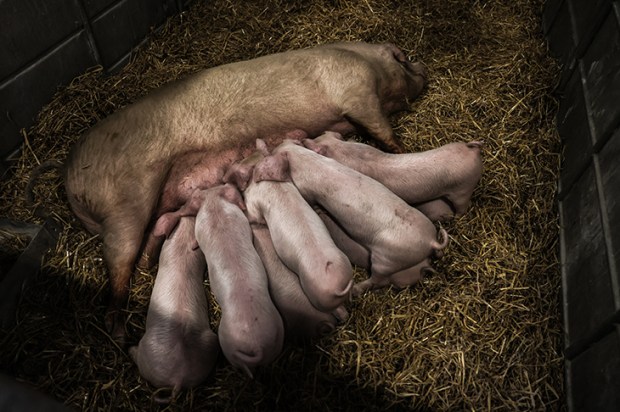A small population on a resource-rich continent, we Australians should be significantly wealthier. Our GDP per capita, around US$65,000, should be at least 50 per cent higher. Instead, we are going backwards.
In the two years to March 2024, households experienced a per capita recession, the sharpest decline in real disposable income in any advanced country, a shocking 8 per cent. Compared with Singapore, a country without our mineral wealth, it is obvious that something is seriously wrong.
As we have long warned, without change, Australia is doomed to follow the once-rich Argentina, whose GDP per capita now is now around a fifth of ours. At independence in 1965, with a GDP per capita of US$516, 28 per cent of Australia’s (US$1,831), Singapore was poor. But without our mineral wealth, Singapore has since left Australia far behind. At US$90,689, her 2024 GDP is 140 per cent of Australia’s, US$64,693.
The difference is even worse if we compare what can be bought in each country.Using purchasing power parity, Singapore’s is US$108,000, an enormous 177 per cent of Australia’s, US$61,000.
And it’s likely to be worse in 20 years’ time, even without our going backwards more than the Albanese government has so far delivered. Singapore’s GDP per capita is projected to range between US$120,000 to US$150,000. This could be up to double Australia’s (US$80,000 to US$100,000).
Something is very wrong. Without doubt, it is misgovernance by the political class. It is becoming increasingly crucial and urgent that Australia change direction.
Formally elected under a system designed to alternate power within an ossified two-party system, politicians are too often effectively chosen by party machines of shady power brokers. For them, the benchmark is factional loyalty, rather than merit.
While that once great Catholic workers’ party, Labor, is transfixed by any mindless foreign radical dogma that appeals to the elites, what is the solution for the party founded by Sir Robert Gordon Menzies?
Perhaps France offers a solution.
Within living memory, facing a civil war or military coup, the French took a decision reminiscent of the solution used at times of crisis in the ancient Roman Republic.
They recalled one of their greatest leaders, General De Gaulle, as a short-term dictator. They then approved, by 82.6 per cent, a referendum for a Fifth Republic to cure the failures not only of the Fourth Republic but also the preceding three republics, three monarchies, two empires, revolutionary rule, and a fascist regime, all while Australia was settled and peacefully evolving from self-government into a federal Commonwealth.
Australia’s current crisis is serious, but unlike France in 1958, not immediately dramatic. And, in any event, there is no constitutional power to follow the practice of the Roman Republic.
Nevertheless, the Liberals could cure their problems by endowing Australia’s greatest living prime minister, John Howard, aided by the party’s greatest election campaigner, Tony Abbott, with full powers to reform the party. This could include removing power broker controls on new members and, following the increasing trend, to involve the rank-and-file membership in the election of the leader. The ideal would be if Tony Abbott emerged as the future leader of a reformed Liberal party to contest the next election, likely in May 2028.
A strong, principled man and former Rhodes Scholar, he is a young and healthy 67, someone who unusually writes his own invariably thoughtful essays and speeches, as in a recent piece in the Australian.
In the meantime, here are seven suggestions to win government.
Their first duty should always be the defence of the realm, so with Australia left defenceless, they should follow the Rinehart Plan increasing the defence budget to 5 per cent of GDP. Through best-practice federalism, it could be readily accommodated without increasing taxes.
Second, they should close down the wasteful Bowen plan to base the electricity grid on so-called renewables and make it unreliable and expensive, costing, according to research from Princeton University, A$1.5 trillion.
All the Bowen plan does is enrich Beijing and conflicted members of Australia’s political class. Instead, the government should restore cheap and reliable electricity without regard to the net zero fantasy, and without the need to debate whether the unproven theory on anthropogenic global warming is discredited. Meanwhile, reliance on so-called renewables is being rejected throughout the world. There is no sound reason, scientific or environmental, why nuclear, clean coal and gas should not be used in power stations.
Third, they should answer our fundamental problem that, as Alan Jones so eloquently puts it, ‘Australia has all the water we need, but it falls in the wrong places.’ The answer has long been available, above all, the Bradfield plan to bring water down from the Queensland coast into outback Queensland and into the Murray-Darling, mitigating floods, producing hydro-electricity, and creating what would be one of the world’s major food bowls and thus populating Australia. This should be supplemented by plans by WA’s first indigenous minister, Ernie Bridge, and NSW minister Jack Beale.
Compared with the $1.5 trillion to be wasted in the damaging Bowen plan, even the somewhat hostile CSIRO estimated in 2021 the Bradfield plan cost would be a fraction of this, between $10 and $22.5 billion.
Fourth, with the three plans to water Australia, as governments did with the Snowy, immigration could be diverted to help build them and then populate what will be a very green Australia
Fifth, the government should ensure that children are educated and not indoctrinated, and that they leave schools and universities disciplined and with a knowledge of history and a love of country and that the system no longer turns out extraordinary numbers of effectively innumerate and illiterate children through no fault of their own.
In the most recent PISA ( Programme for International Student Assessment) tests, Singapore’s literacy results were nine per cent higher than Australia’s; her numeracy results were 18 per cent higher, and her science results were 11 per cent higher.
Six, rather than harassing farmers and miners, they should be encouraged.
Seven, the constitution should be reformed to involve the rank-and-file in governing the country, as the Swiss are, through citizen-initiated referendums.
Got something to add? Join the discussion and comment below.
You might disagree with half of it, but you’ll enjoy reading all of it. Try your first month for free, then just $2 a week for the remainder of your first year.













